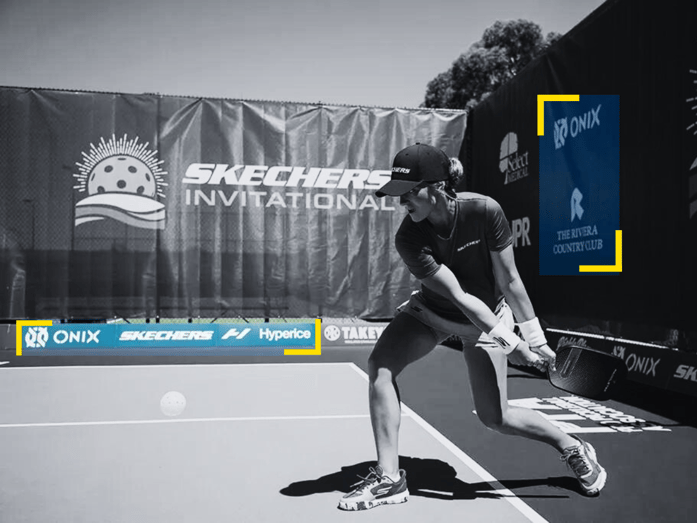
In the highly competitive world of sports marketing, one of the most effective strategies for brands is to connect with audiences through sponsorship. Whether it’s a massive global event like the Olympic Games or a niche sport with a devoted following (e.g. Pickleball), sports provide a unique opportunity for brands to align with a passion point for many consumers. But as with any strategy, success requires keeping up with the latest trends and evolving consumer behavior. We’ll explore the latest trends in sports marketing and how brands are connecting with their audiences in new and innovative ways.

Focus on Consumer Experience
One of the biggest trends in sports marketing in recent years has been a growing focus on the consumer experience. Brands are realizing that simply slapping their logo on a sports team or event isn't enough - they need to provide a value-add for consumers. This can take many forms, from stadium giveaways and interactive fan experiences to exclusive VIP events and even branded content. By creating a memorable experience around their sports sponsorship, brands can generate positive associations with their brand and build a deeper connection with their target audience.
Take HoneyBaked Ham as an example, the brand is targeting college football fans with a 10-stop tailgating tour, making "Game Day, HoneyBaked Ham Day."
Emphasis on Sustainability
Another trend that has gained traction in sports marketing is a focus on sustainability. As more consumers become increasingly concerned about issues such as climate change and environmental impact, brands are under pressure to show that they are also invested in these issues. This can be achieved through a number of tactics such as green initiatives, recycled materials, and eco-friendly messaging. By aligning themselves with a cause that resonates with consumers, brands can build brand loyalty and differentiate themselves in a crowded sports sponsorship marketplace.
PepsiCo led a great example of this at the Men's & Women's Champions League finals, committing to all food and beverage packaging supplied at events being completely recyclable. This was one of many commitments to sustainability the brand made, read more here.
Integration with Social Media
Social media continues to be a major force in sports marketing, with platforms like Twitter, Facebook and Instagram providing a highly engaged audience of consumers. Brands are increasingly using social media to amplify their sports sponsorship message, with tactics like live streaming, photo contests, and influencer partnerships. By tapping into the huge reach and influence of social media, brands can dramatically increase their visibility and connect with new audiences.
When Spain won its first-ever Women's World Cup title, beating England Lionesses in a close final, it wasn't just Spanish players and supporters celebrating the team winning FIFA Women's World Cup 2023, the team's sponsors have also generated strong sponsor media value (SMV) from the coverage social.
Here's how much SMV this 433 Instagram post alone drove for Spain shirt sponsor Adidas.
Personalization and Customization
Finally, another trend in sports marketing is a growing emphasis on personalization and customization. Brands are recognizing that consumers want to feel like they are part of something that is tailored to their interests and preferences. This can take many forms, such as personalized merchandise, customized fan experiences, and even targeted advertising campaigns. By focusing on personalization and customization, brands can create a more meaningful connection with consumers and generate a more loyal fan base.
The world of sports marketing is constantly evolving, with new trends and innovations emerging all the time. By staying on top of these trends and adapting their strategies to reflect changing consumer behavior, brands can continue to generate meaningful connections with audiences and drive long-term success. Whether it's tapping into the power of social media, focusing on sustainability or creating personalized fan experiences, the most successful sports marketers will be those who are able to stay ahead of the curve and innovate in new and exciting ways.

